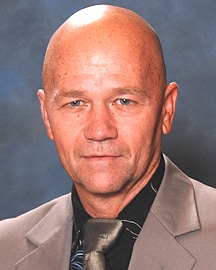By UTU Assistant President Arty Martin
While watching the Major League Baseball Game of the Week Saturday between the New York Yankees and Boston Red Sox, I was reminded of how important history and heritage are.
Prior to the start of the game, a special guest of the Red Sox was honored — 100-year-old Arthur Giddon, who had been a bat boy for the old Boston Braves as a 13 year old, 87 years ago. The Braves, until they left Boston for Milwaukee in 1952, were in the National League, while the Red Sox have remained Boston’s American League team.
Arthur was a bit slower as an honorary bat boy during Red Sox batting practice on Saturday, but no less enthusiastic in handing bats to sluggers Kevin Youkilis, Jason Varitek, Jason Bay, and David Ortiz.
Wearing uniform number 100, with the name “Big Pappy” on the back (not to be confused with Ortiz’ nickname of “Big Poppy”), Giddon and almost 40,000 Boston baseball fans celebrated a game that has long been the American pastime, linking generations and strengthening family ties.
As a Red Sox official observed, “Baseball is a celebration of generations, and a celebration of bringing them together.” The parallels with the UTU, its history and heritage, are significant.
In the UTU, our roots run deep. Our predecessors are the ones we humbly thank today for labor laws protecting our right to organize, the requirement that employers bargain in good faith and the appointment of neutral arbitrators to hear our grievances.
UTU predecessor organizations were formed when the predominant mode of transportation in America was the horse.
In the generations that followed, rail — and later bus and aviation workers — looked to the Brotherhood of Railroad Trainmen, the Brotherhood of Locomotive Engineers & Firemen, the Order of Railway Conductors and Brakemen, the Switchmen’s Union of North America, the International Association of Railroad Employees, and the Railroad Yardmasters of America (all now part of the UTU) for job security and improved wages, benefits and working conditions.
Our roots run deep, and our heritage was built on personal sacrifice and success. Our future — the future of our members and their families — will prosper, as baseball in Boston has prospered, by celebrating our heritage and never forgetting who brought us to the dance. Indeed, we can learn a lot about life, progress and success from baseball.
President Futhey, General Secretary and Treasurer Thompson and myself encourage all UTU members to take the time to learn of our history and heritage and what it means to you and your families.
This year is the UTU’s 40th anniversary, although the roots of our predecessor unions stretch back more than a century.
We will be celebrating our roots and history at the regional meetings this summer. You owe it to yourselves and your families to be educated and involved.
I also remind all members to attend the regional meetings in San Francisco and New Orleans, where our heritage, along with many other leadership topics, will be discussed in workshops.
